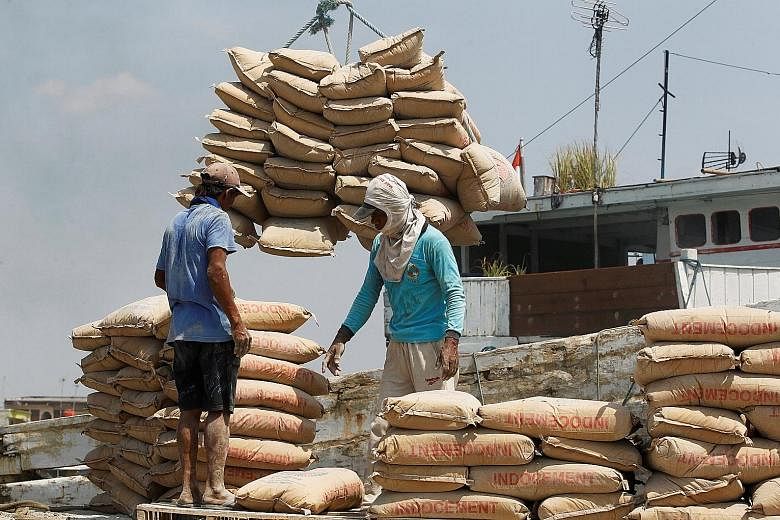JAKARTA • Indonesia yesterday surprised with its strongest growth in 10 quarters in the April-June period, spurring some economists to predict it will outperform most of its South-east Asian neighbours the rest of the year.
However, others cautioned that Indonesia needs more private investment to sustainably raise its growth rate, as a widening Budget deficit means government spending has to be contained.
Gross domestic product (GDP) in the second quarter rose 5.18 per cent from a year earlier, against a revised 4.91 per cent in the first three months, the Statistics Bureau said. The annual growth rate was the highest since the last quarter of 2013, nearly a year before Mr Joko Widodo became President.
The new number "foreshadows what we expect to be Indonesia's ascent to be one of the outperforming economies in Asean", ANZ wrote.
OCBC's Wellian Wiranto called Indonesia a "momentum play", saying the data "adds oomph to positive sentiment" about the country.
The Jakarta Stock Exchange benchmark, up 18 per cent this year, rose 0.5 per cent after the GDP data was released.
One reason markets have been upbeat is Mr Widodo's recent Cabinet reshuffle that saw widely respected reformer Sri Mulyani Indrawati leave the World Bank after six years and return to being Finance Minister. ANZ said the reshuffle "suggests a cementing of the reform agenda".
The Statistics Bureau credited the second quarter's growth to higher commodity prices and government spending, solid consumption and better crops.
Low global commodity prices have hurt Indonesia for years, denting export earnings, investment, state revenue and purchasing power. It was the main reason growth last year slowed to a six-year low of 4.8 per cent. Household consumption, representing more than half of GDP, gained in the second quarter as people spent more money at the start of the Muslim fasting month, which this year began in June.
DBS economist Gundy Cahyadi said strong consumption should support growth but Indonesia needs more investment to sustain a solid pace. He warned that the state's contribution to growth may fall in the second half because "the pace of spending may actually ease... as the government will attempt to keep fiscal deficit in check".
To aid state finances and try to bring home billions of dollars Indonesians have overseas, the government last month launched a tax amnesty programme. The amnesty could provide "an additional fillip to growth", said Mr Michael Wan, economist with Credit Suisse, which expressed a "positive view" of the Indonesian economy.
After the data announcement, RBS upgraded its outlook for Indonesia's growth this year to 5.1 per cent from 4.9 per cent.
Not everyone thinks Indonesia is poised to achieve much stronger growth in future, let alone reach the 7 per cent target Mr Widodo promised during his campaign.
"While we think the worst for Indonesia's economy is now over, a combination of fiscal tightening and low commodity prices will keep growth stuck at around 5 per cent over the next couple of years," Capital Economics said.
REUTERS

